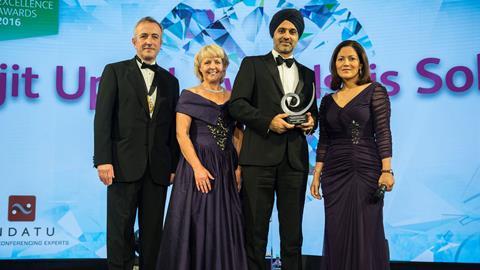Director and solicitor-advocate, Switalskis Solicitors, Huddersfield
When I was young my father used to take me to business meetings with banks and other professional advisers. This fuelled my interest in pursuing a legal career.
While at Greenhead College in Huddersfield I helped set up an Amnesty International Group. We encouraged students to write letters to different prisoners of conscience each month; and so began my interest in human rights and family life.
Pro bono work still plays a significant role in my career. I have been fortunate enough to travel to Uganda on six occasions as part of Huddersfield Law Society’s Twinning Group, which aims to unite and develop the legal community locally and internationally. I returned there last year to do further pro bono work on behalf of Role UK.
Following work experience at a high street firm in Huddersfield, I was offered a training contract with a focus on family and child care law. My early legal training was very hands-on and I was lucky enough to be trusted with advocacy work from the outset.
Being a legal aid lawyer and doing complex child care cases is challenging. Representing a vulnerable mother, father, or a child who has been harmed is not easy. To help them you have to build up a relationship and show compassion so they will listen to you. This requires considerable time and patience. Their life experiences may be beyond their control and it can be hard offering advice that ultimately may not be acted on.
In 2006 I became the first Asian and youngest president (aged 33) of the Huddersfield Incorporated Law Society in its 136-year history. I became a deputy district judge in 2010 and a higher-rights advocate in 2008, which has opened up so many opportunities. I’m particularly honoured to have won this year’s Law Society Excellence Award for Solicitor Advocate of the Year (pictured).
Sadly, with funding cuts from legal aid post-LASPO, I see many vulnerable clients in exceptional circumstances who no longer qualify for legal aid. They have no choice but to enter a courtroom without any legal representation, even when faced with the most serious allegations. For example, if a local authority names a family member who it believes has caused physical or sexual harm to a child, that family member must attend court alone to challenge it. In such circumstances, access to justice may well be compromised.
Through my roles as committee member of the Legal Aid Practitioners Group, and Family Justice Council public law safeguarding subcommittee, I’ve endeavoured to limit the impact of political and economic changes.
When I started working in 1995 care cases could take on average 12-18 months to conclude. All professionals knew this was far too long for a child. The law was changed and all cases must now be concluded within six months (subject to limited exceptions). This is significant for children being able to form healthy attachments with their carers.
































No comments yet